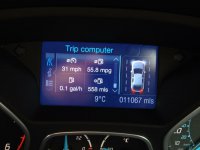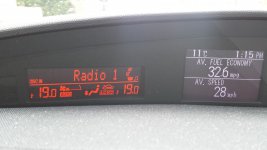The main crux of you're argument is "what ever you hear"
Most Easterly Pandas has a plug in hybrid so it's not so much what he hears as what he lives with daily. I know a couple of people with both plugs in hybrids, normal hybrids and all electric vehicles. It's not just about what you hear 3rd or 4th hand we're getting direct from people who use these cars every day.
You talked about PHEVs but when MEP used the abreviation you didn't seem to realise what he was talking about.
The whole point in the thread is that people don't get their quoted MPG figures and MEP Went quite a bit in depth as to why this happens with PHEVs so there is no denial there. But a plug in Prius is about £2k more than the same non plug in model and requires a considered through before buying one, so if that person isn't using it properly and isn't charging it when required then that's really their own fault and not something you can blame the car for, if however they use the car like this, they will still see the same MPG figures they would have gotten with the non plug in model.
as for hybrids I'm a little on
StevenRB45 side of the fence, why take a car that works fine and then load it up with another 500kg of technology, just to squeeze a few more MPG out of it, it's unnecessary and over complicated.
The Prius has been ground up designed for fuel economy so would put most cars to shame even without the electric motor working.
Extra aerodynamic, light weight construction, ultra fuel efficient 1.8vvti engine etc, Toyota have done it for years so really know their stuff, and the current Prius is the peak of all that R&D.
I'd actually rather see the petrol or Diesel engine dropped completely. Better batteries, better motors (like the one in the BMW i8) and a better range, the current Nissan Leaf can muster 100miles on a charge, while tesler get 300miles out of their battery if every electric car had a 300 mile range, then there would be little to argue against owning an electric car and as mentioned many of the batteries fitted to electric cars seem to far outlast their expected life cycle proven by 1998 Prius cars still running about on their original battery, charge it from wind or solar energy and over a 20year period the environmental impact is very low by comparison to a car pumping out a load of exhaust chemicals each year




